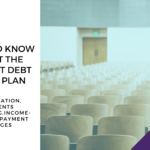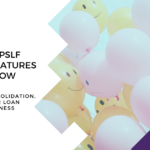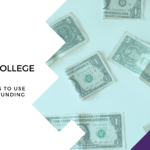The temporary student loan relief included in the CARES Act has been extended through 1/31/2021. The extension helps address borrower concerns during the transition of the Biden administration. Federal student loan relief will now stretch ten months. This article is a quick reminder of the temporary relief initiatives.
How are borrowers being given temporary student loan relief?
All of the below items only apply to federal student loans. If you have private student loans and are struggling to make payments, contact your servicer.
- Interest won’t accrue on student loans owned by the Department of Education. Remember that this doesn’t include all federal student loans, many Perkins and FFEL loans are not included.
- Payments for federal student loans owned by the Department of Education are suspended.
- The Department of Education will consider each month during this period of suspended payments as an eligible month toward loan forgiveness.
- Suspended payments are treated as a satisfied monthly payment for credit reporting purposes.
- Involuntary collections on defaulted loans will be stopped during the period of suspended payments.
What should I do if my federal student loans are in default?
- Rehabilitation and consolidation are the two options for getting your federal student loans out of default. You can read more about how to get your student loans out of default.
- Once you’ve entered into a rehabilitation agreement you will need to make nine months of on time payments. The temporary relief pauses your payments through January 31st, 2021. That means after you initiate rehabilitation you can satisfy monthly payments without having to pay.
- The interest rate on Department of Education owned loans is 0% so consider making payments if your situation allows it.
- Wage garnishments will remain paused until February 2021. If you’ve had wages garnished from 3/13.20 – 1/31/21 reach out to your servicer so they can contact your employer to stop. You are also entitled to receive a refund of any involuntary collections made after 3/13/2020 from the Department of Education.
What do I need to know while working toward loan forgiveness?
- You don’t have to make any monthly payments through January 31st, 2021.
- All the months of non-payment during the temporary pause will count toward the required number of payments. So if you’re pursuing Public Service Loan Forgiveness (PSLF) or Income-Driven Loan Forgiveness (IDLF) you made ten or eleven payments (depending on your monthly payment date) counted from March 13th through January 31st.
- Making payments on loans that are eligible for PSLF doesn’t make sense because you can’t pay ahead or have loans forgiven sooner. So consider using that monthly payment to boost your savings or retirement accounts if you can.
What can I do if I’m struggling financially and need the relief.
With newly spiking COVID cases, borrowers continue to experience job loss, wage reduction, or are working less hours. That means less money to do the basic things like pay for health insurance, pay rent/mortgage, keep the lights on, and put food on the table. It also means the financial pressure of student loans can be crushing. Take advantage of not having to make payments to your federal student loans through January 31st. Department of Education owned loans aren’t accruing interest right now so although your loan balance won’t be going down, it also shouldn’t be increasing.
You will also want to think ahead to when the temporary pause will end. Your best bet in this situation is enrolling in an income-driven repayment plan. Income-driven payment plans can be as low as $0/month depending on your income so can be a good option for maintaining good credit and avoiding delinquency and default.
How can I pay my loans off as quickly as possible?
As long as you’re not pursuing loan forgiveness and your financial position is strong, making payments now can help you pay off your loans even faster. A 0% interest rate on Department of Education owned loans means your payments will be going to principal and paying down your balance even faster. One thing to watch out for is refinancing; you can’t beat 0% on federal loans. You can consider refinancing any federal student loans after the temporary relief expires. This relief doesn’t apply to private loans so you can look into refinancing private loans now.
Helpful Links
Coach Q&A: What is Income-Driven Loan Forgiveness?
5 Tips for Choosing Teacher Loan Forgiveness or Public Service Loan Forgiveness
Coach Q&A: Public Service Loan Forgiveness Pitfalls
CARES Act Help for Student Loan Default
Federal Student Aid Coronavirus Information for Students, Borrowers, and Parents




